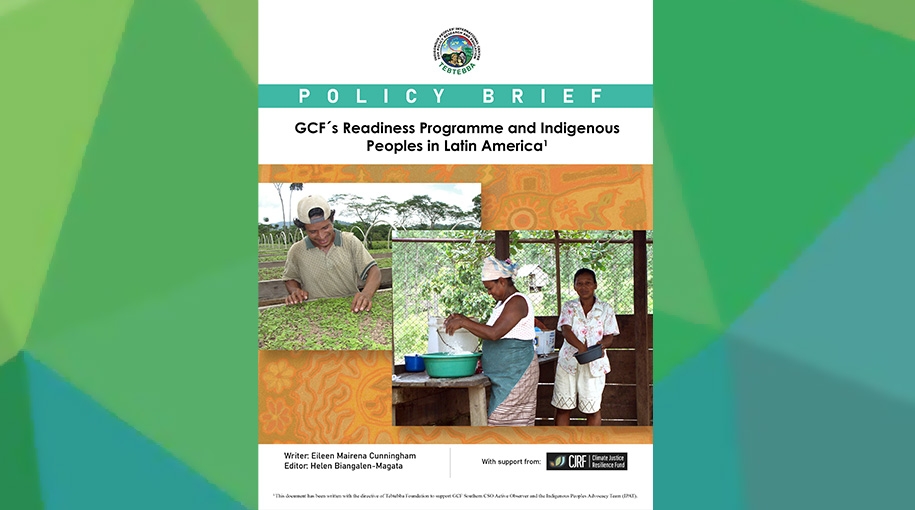Summary report
This document has been written to describe and guide Indigenous Peoples Organizations (IPO) in Latin America on GCF's Readiness and Preparatory Support Program (readiness program) and to alert and prepare them to directly access to financial resources of the Fund.
Indigenous Peoples’ organizations in Latin America, as in other parts of the globe, have insisted and have a permanently lobby process on their demand for direct access to the financial resources of the GCF.
This process presents two areas: on the one hand, the high standards and rigorous parameters of the GCF, first, to be accredited and second, to properly access the funds. On the other hand, we have to consider the history and administrative, technical and financial capacities of the organizations of indigenous peoples. These are two very different aspects, however, both the GCF and the IPOs, have to analyze, and get to know each other and, work together to pave the way for the IPOs to access the funds.
This work was carried out mainly at the desk work level only. It´s spent a lot of time browsing the various pages of the GCF website; the decisions of the Directive Board and also reports from regional organizations such as the Observatory for Climate Action (OLAC, for its Spanish acronym) and Latin American Finance Group (GFLAC, for its Spanish acronym) were reviewed.
What we find in this research is that despite the fact that the GCF is a new organization, compared to other international financial organizations, such as the World Bank or other regional banks, it has managed to have a robust organic structure and a well-defined mandate and procedures. Although the UNFCCC made a decision for the creation of the GCF from 2009 in Copenhagen, the Fund was created as a result of the 16th Session, held in Cancun, Mexico, in 2010. It was only until November 2015, 5 years ago, that GCF approved its first eight projects.
In this process, the GCF has been very agile in defining and establishing its organic structure, policies, programs, procedures, mechanisms, and ensuring its proper functioning. These are very robust and strict components of the GCF.
Although the participation of civil society organizations (CSO) and private companies as active observers is very narrow, Indigenous Peoples Organizations managed, in agreement with the developing countries CSO, to share one of the space assigned to them in the Active Observer Team.
For their part, the IPOs have demonstrated a lot of tenacity and lobbying capacity, in their demand to have a special GCF window for indigenous peoples, however this has not been achieved. Perhaps the creation of the Platform for Local Communities and Indigenous Peoples, is a sign of the results and impact of that effort, which could advance the provision of financial resources to the IPO.
The issue now is that the GCF has accreditation processes that are very rigid and strict and that for IPOs they represent conditions and parameters that are difficult to comply with. Despite this, the GCF is concerned with facilitating the accreditation process for which it is considering new approaches. One option appears to be project specific assessment approach. We also see that the GCF Board of Directors has adopted decisions to prioritize national direct entities in those countries that do not yet have a Direct Access Entity.
Download attached file to read full report.


